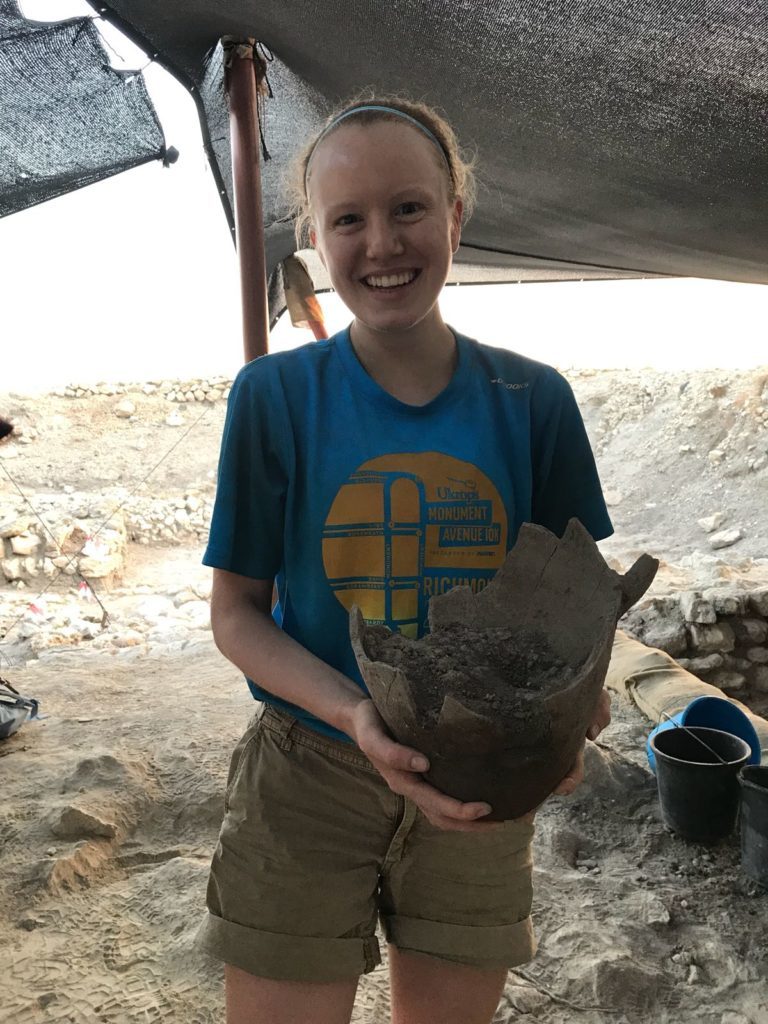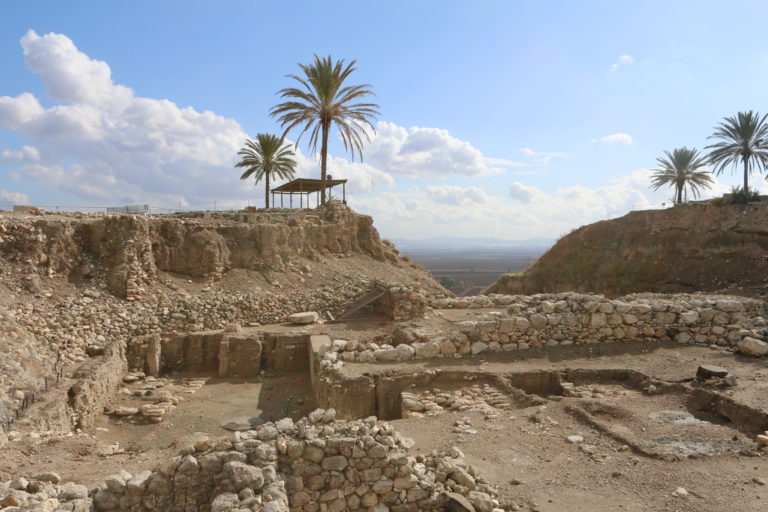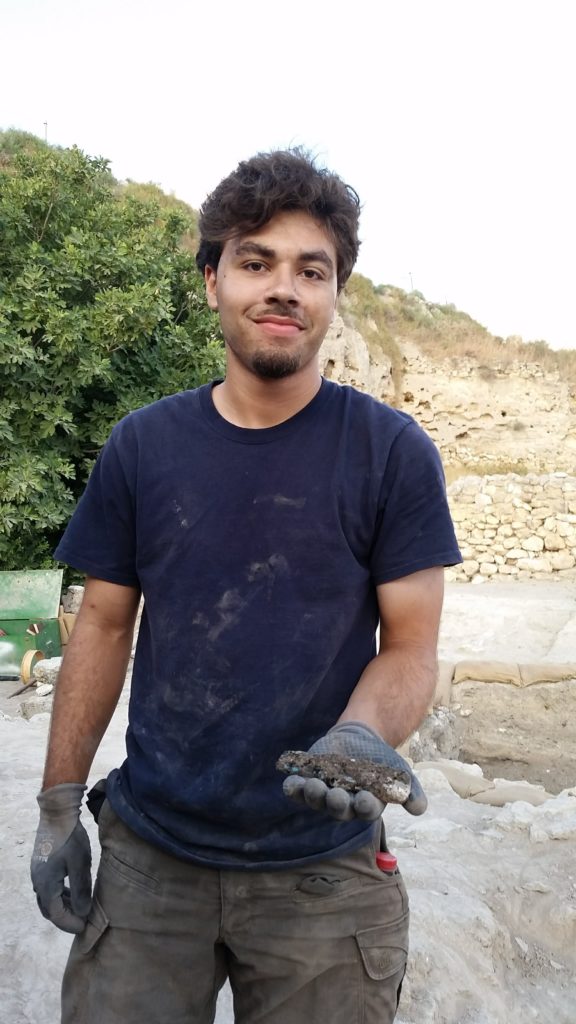Blog
Two of our interns, students Elizabeth Dowker and Michael Stewart, were supported by the biblical Archaeology Society of Northern Virginia (BASONOVA), spending a month at Tel-Aviv University’s Megiddo Expedition, and a month in residence at the Albright. BASONOVA provides annual grants to students as part of its mission to invest in the future of biblical archaeology. Dowker and Stewart, as participants in an Albright-affiliated excavation, are now spending an additional internship month at the Albright involved in a variety of projects. We asked them to reflect on their experiences this summer.
Where and what are you currently studying right now?
Elizabeth Dowker: I am studying at the College of William & Mary in Williamsburg, Virginia. I am an Art History Major with a minor in Data Science, concentrating in Spatial Information
Michael Stewart: I am currently an incoming Junior studying archaeology at the California State University at Sacramento.
How did you become interested in participating in an archaeological dig?
MS: I became interested in working on an archaeological dig during my freshman year of college. I had heard stories from many professors of their experiences and when i spoke to one professor about starting a career in archaeology, she recommended that I join a field school.
What was your first impression upon arriving at the excavation?
ED: My first impression of the dig was characterized by the extremely early and long mornings. waking up at 4 am and conducting manual labor for seven hours was certainly a different experience, but one that i grew accustomed to and even enjoy over the course of the excavation. Additionally, I was struck by the deep interest exhibited by both staff members and students for the region and periods we studied at Megiddo.
MS: My first impression upon arriving to the Tel Megiddo excavation was that i felt like i was somewhere that I belong. I loved how knowledgeable, friendly, and helpful the staff were and the whole student group was great as well.

This photo was taken shortly after i removed the vessel after working on it for around eight days. My delighted smile attests to the level of pride and happiness i felt in removing it nearly whole
Elizabeth Dawker
College of William & Mary, Williamsburg, Virginia
Any memorable moments?
A second strong memory is an instance when i realized how applicable GIS is for the archaeological analysis. Dr. Adams and Zach Dunseth, the Area S supervisor were discussing the problem of how to find the volume between two layers of loci. Because of my knowledge of GIS, I was able to propose a workflow system that would allow them to efficiently calculate the volume. It was rewarding to realize that knowledge and tools that i gained in classroom setting could be used to solve real problems facing field archaeologists. I will continue this project in the fall to establish a standardized workflow.
MS: There were many memorable moments from this summer, but some of my favorites have to be getting to know, and working with, my supervisors and Dr. Adams during pottery reading, hiking up Gamla, traveling across Israel with my friends, and the great going away party the the Tel Megiddo team hosted on behalf of all of their volunteers and staff.
Describe what you are doing at the Albright Institute.
ED: My primary work at the Albright Institute consists of digitizing photos from trips and lectures held at the Albright Institute during the 1980’s. I scan the photographs, then transcribe the associated information into a metadata ED: sheet. The librarians of the Albright will then upload the photographs and information into the Albright’s library system. Afterwards, these photographs can be included on the Albright’s website.
MS: I am currently working on helping the Albright organize and clean up their collection of periodicals for the digitization project as well as doing research for an article that I plan on helping publish.
had you heard of the Albright Institute? What is your impression and experience of living at AIAR?
MS: I had heard about the Albright Institute before through lectures and books, and knew that it was a very well esteemed center of research for Near Eastern Studies. AIAR has left an outstandingly good impression on me during my time here. They have a wonderful library, amazing food, a helpful and kind staff, and provide a top tier environment for academic research.
Plans for the future? Academic or career-wise?
ED: I intend to pursue a career path in spatial data, hopefully in connection to archaeology. Though I do not know in what specific manifestation, I do intend to pursue graduate school shortly after completing my undergraduate studies.
MS: After this summer, I plan on finishing my undergrad at Sacramento State. I also plan on continuing to do field work in Israel in the coming summers as well as moving on to graduate school. After all of that, I hope to start a career in Near Eastern Archaeology.
Any other impressions or comments on your experiences this summer?
MS: This summer in Israel has been one of the most enjoyable experiences in my life and has solidified my plans of moving on to graduate school to start a career in archaeological research. I want to convey my sincere gratitude to BASONOVA and the Albright Institute for taking me in and allowing me to further my education and experience in the field of archaeology. I also want to thank Dr. Adams especially for notifying me of the opportunity and for having me work on a great project this summer.

